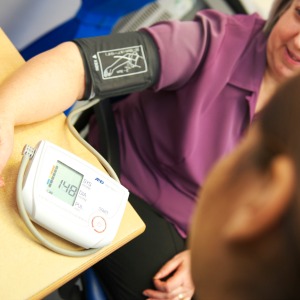NICE green-lights use of ‘game-changing’ heart failure drug on the NHS

GPs could soon be treating many heart failure patients with a completely new drug, as NICE has green-lighted a ‘game-changing’ alternative to ACE inhibitors and angiotensin receptor blockers (ARBs).
NICE experts have provisionally approved the new drug – a combination of sacubitril and the ARB valsartan – ’as an option’ in patients with heart failure and impaired systolic function.
The draft plans, unveiled today, will see patients with New York Heart Association (NYHA) class II to III chronic heart failure, and a left ventricular ejection fraction of 35% or less, given the option to come off ACE inhibitors, or ARBs, and switch over to the new drug.
NICE says treatment should be started by a heart failure specialist with access to a multidisciplinary heart failure team, but dose titration and monitoring may be done in primary care by ’either a GP with a special interest in heart failure or a heart failure specialist nurse’.
The drug was previously approved by the Medicines and Healthcare products Regulatory Agency (MHRA) Early Access to Medicines Scheme (EAMS) in September, meaning it could be prescribed on the NHS to eligible patients with ‘significant unmet medical need’.
Last year GP experts told Pulse that, if approved, the drug could be a ‘game changer’ in the management of heart failure, because it appears to be much more effective than established treatments.
In trials, the drug has been shown to significantly reduce cardiovascular deaths and heart failure hospitalisations when compared with ‘gold-standard’ treatment with enalapril.
NICE experts said the drug would be cost effective compared with the older drugs, at a cost per quality adjusted life year (QALY) gained of £29,500 to £30,100.
Dr Terry McCormack, a GPSI in cardiology in Whitby, North Yorkshire, said he welcomed NICE’s decision ‘as the evidence is that this drug will improve the wellbeing of patients with heart failure’.
However, he added that because hospitals in some areas do not report ejection fraction, this requirement before a treatment offer ‘may be controversial’.
Dr McCormack also said it was ‘irritating that they are insisting all patients are initiated by heart failure specialist consultants as this will require re-referral of patients previously assessed and now being managed by heart failure nurses who will be more than capable of identifying the correct patients’.
Visit Pulse Reference for details on 140 symptoms, including easily searchable symptoms and categories, offering you a free platform to check symptoms and receive potential diagnoses during consultations.











